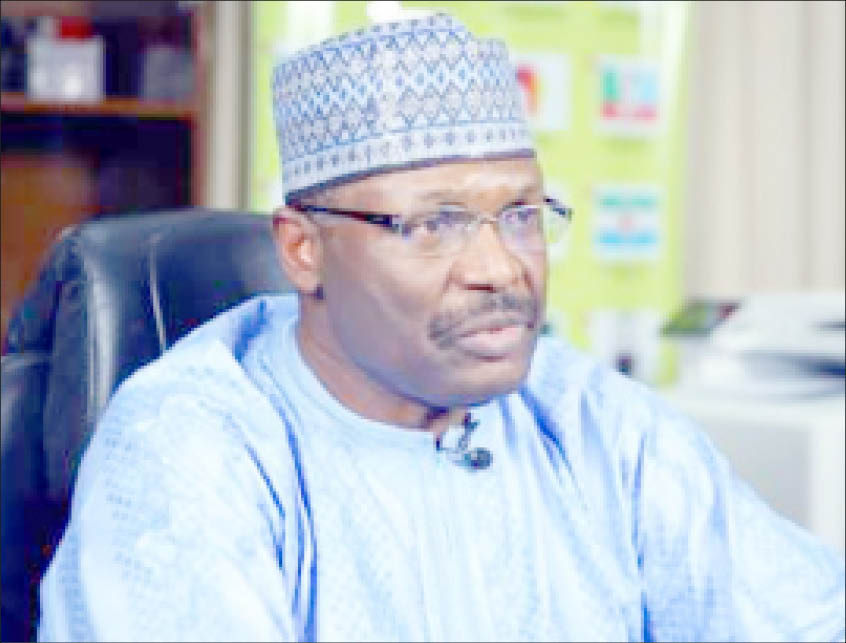Decline in voters’ turnout signals lack of public trust—Yiaga Africa
Yiaga Africa has said that the steady decline in the turnout of voters in Nigeria’s elections, despite technological and other electoral progress, is worrisome and signals eroding public trust in the electoral umpire. But the Independent National Electoral Commission (INEC) said Nigerians who appreciate its enormous work still have confidence in the commission. The Executive […]

INEC chairman, Prof Mohmood Yakubu
Yiaga Africa has said that the steady decline in the turnout of voters in Nigeria’s elections, despite technological and other electoral progress, is worrisome and signals eroding public trust in the electoral umpire.
But the Independent National Electoral Commission (INEC) said Nigerians who appreciate its enormous work still have confidence in the commission.
The Executive Director of Yiaga Africa, Samson Itodo, said this on Monday in Abuja at a Reflection Roundtable on the One Year Post 2023 General Election, themed ‘Post 2023 Elections: Trends, Insights, and Electoral Reform Prospects’.
The event also saw the public presentation of ‘Electoral Trust Restored?’ a report of the post-2023 general elections. The 72-page book was presented by Dr. Hussain Abdu, Chair, Watching the Vote Working Group of Yiaga Africa, and Itodo.
Itodo cited a recent Afrobarometer survey, where it was stated that confidence in electoral bodies across most African countries, including Nigeria, is declining.
“The survey shows that only 23% of Nigerians trust INEC, down from 31% in 2020. This decline in trust is largely attributed to the unfulfilled expectations during the 2023 general election, where procedural flaws and technological issues in result transmission cast doubt on the credibility of the process.
“The subsequent off-cycle gubernatorial elections, rather than restoring trust in the electoral system, were another missed opportunity to rebuild public trust. The discovery of pre-filled results sheets prior to the start of accreditation and voting, the failure to use the Bimodal Voter Accreditation System (BVAS) for accreditation, and the lack of legal action against electoral offenders, particularly INEC officials, erode public trust and promote a culture of electoral impunity,” Itodo said.
He added that the unknown stance of the President Bola Ahmed Tinubu-led administration on electoral reform, one year after the general election, is another factor eroding the confidence of electorates.
He said, “Following the conclusion of election petitions, there is a public expectation that the President will present a definitive electoral reform agenda to restore trust in the process.”
Itodo said that while the 10th National Assembly has initiated the process of revising the electoral legal framework, it is important that the presidency demonstrate commitment to electoral reform to reassure the public that the outcome of the process will not be futile when the time comes for presidential assent.
He also said that the spate of conflicting judgments from the courts created uncertainty about Nigeria’s electoral jurisprudence and subjected the judiciary to public ridicule.
However, when contacted, Rotimi Oyekanmi, the Chief Press Secretary to the INEC Chairman, Prof. Mahmood Yakubu, said that while he just received the Yiaga report and has not fully read it, there is a need for caution when arriving at any conclusion in describing those who may or may not trust a public institution in percentage terms.
“We believe that many Nigerians, who appreciate the enormous responsibilities and challenges that INEC faces, trust us. We need to interrogate the sampling methods employed by YIAGA before arriving at its conclusion. For instance, we have 93,469,008 registered voters spread across the 36 states and the FCT. Did YIAGA adopt the simple, random, cluster, systematic, stratified, or convenience sampling method? Is YIAGA basing its conclusion on the total number of people involved in its research or on the total number of registered voters in the country?
“While we appreciate the fact that some Nigerians have trust issues with many public institutions, not just INEC, we are convinced that dispassionate Nigerians believe in us. We have our own feedback mechanism, and we are encouraged by what our stakeholders tell us and the suggestions they offer for us to improve,” Oyekanmi said.
